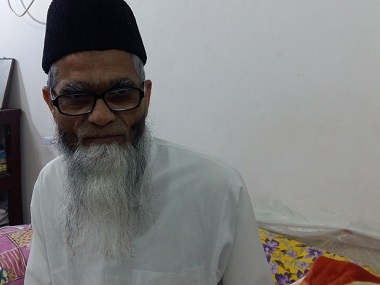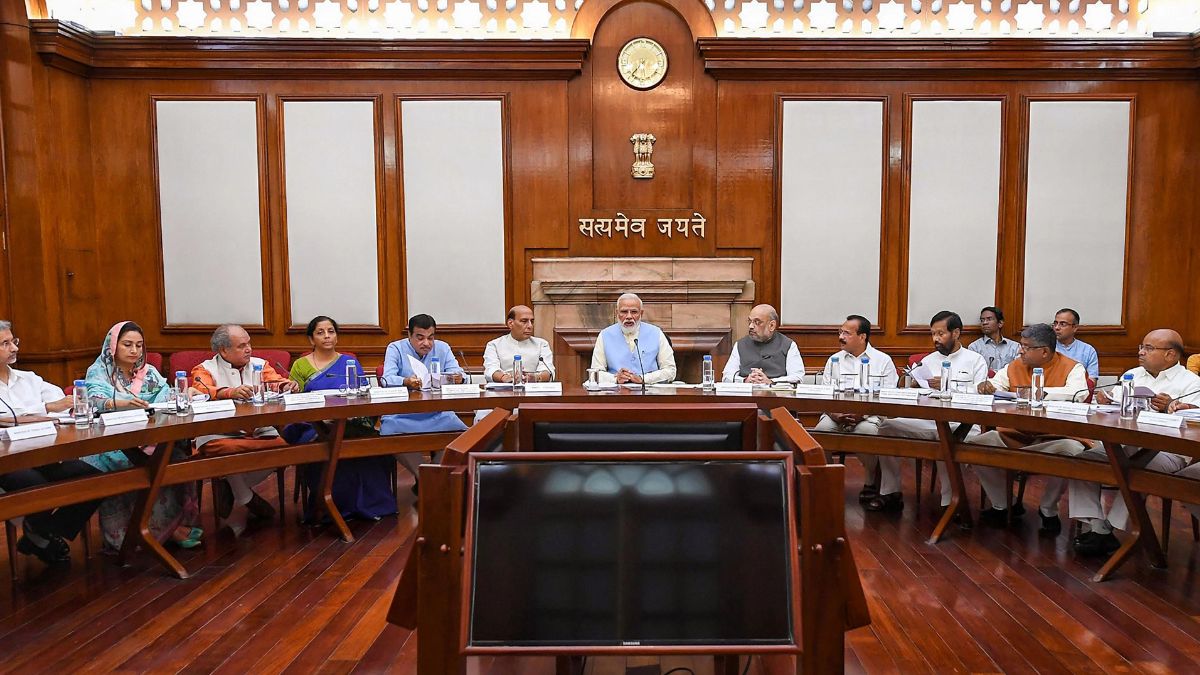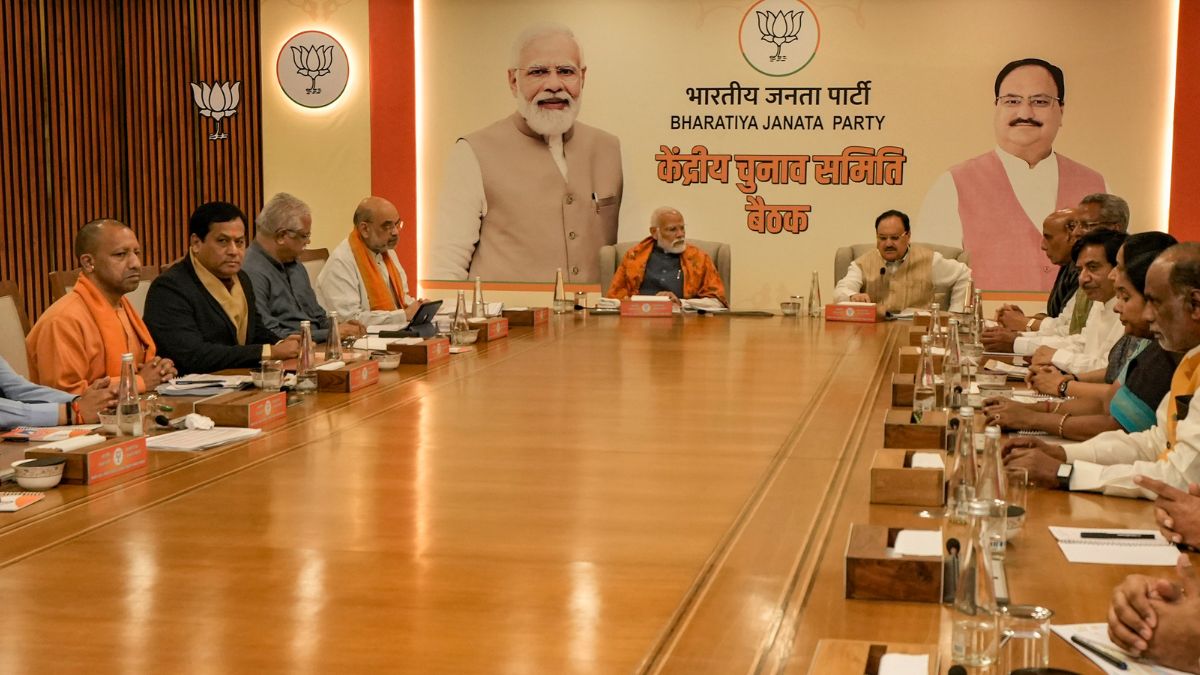The Rashtriya Ulama Council (RUC), a political party established in the wake of the Batla House encounter of 2008 – in which names of several Muslim youths from Azamgarh district figured – has backed the Bahujan Samaj Party (BSP) in the ongoing Uttar Pradesh Assembly elections.
There are indications to suggest that RUC-backed BSP candidates are likely to win in Didarganj, Nizamabad and Gopalpur constituencies of Azamgarh, a traditional stronghold of the Samajwadi Party (SP). The RUC’s fear in the SP camp can be attested by the fact that on 3 March, a day before polling in Azamgarh, copies of the Urdu daily Roznama Inquilab disappeared from newsstands.
“The SP might have prevented the newspaper from reaching here because we had given an advertisement in it,” RUC president Maulana Aamir Rashadi told Firstpost. In the past, the RUC has tried to establish its footprint by contesting elections in Uttar Pradesh, Delhi, Maharashtra and Bihar. In the current UP elections, it did not field its own candidates and is instead backing the BSP.
However, it’s not the RUC’s electoral footprint but rather the intellectual orientation of its leader, Rashadi, which acquires significance in India’s national politics. “In our politics, BJP is neither our enemy nor are the so-called secular parties our friends,” the RUC chief declared, speaking at the Jameatur Rashad madrassa in Azamgarh.
“Political parties which support us in the achievement of our rights are our friends,” he said and added, “Why has Modi become our enemy because of just one riot and why is Akhilesh not our enemy despite hundreds of riots during his tenure?” Rashadi believes that the SP-Congress alliance is a saazish (conspiracy) against Muslims of Uttar Pradesh.
The RUC was first established as an NGO to address the entanglement of Azamgarh’s Muslim youths in the state’s local violence and later in terror cases. It organises events in Delhi on the anniversary of the Batla House encounter each year. Rashadi claims that all terror cases involving youths from Azamgarh district are framed by the governments to suit the politics of the ruling parties.
Even when reminded of a video statement released by Indian jihadis from Syria, he refused to believe that any Muslim youth can be involved in terror cases and, to buttress his point, Rashadi argues that the government has tried to implicate Muslims in terror cases and later, to compensate, have slapped bogus charges against Hindus, and vice versa.
“In this country, neither the Hindus are terrorists nor are the Muslims… only the governments are terrorists, which implicate Hindus and Muslims to fit their politics,” he said. Rashadi’s views resonate with many, more so since former home minister of India, P Chidambaram, was recently accused of allegedly doctoring an affidavit to suit the Muslim sentiments in the Ishrat Jahan case.
Although the RUC is a Muslim party, Rashadi’s intellectual outlook defies the dominant thinking among many Indian Muslims. He criticises Islamic clerics who support political parties for power and pelf, lambasts the pseudo-secularism being practised in India’s politics and declares the Sachar Committee report as bogus. His intellectual thinking sets him apart from other Muslim leaders and Islamic clerics.
“There is no truth in the Sachar Committee report. It was put together to usher Muslims into siege mentality, to create fear and to engender a psychosis among them. The secular parties are deriving benefits by making us enemies of the BJP. We have to demolish this practice,” Rashadi said, stressing that these parties are practising pseudo secularism.
He refuses to accept that there are intellectuals among Muslims, adding: “I am searching for them. Where are they? The so-called intellectuals among Muslims have undertaken a contract to create ehsas-e-kamtari (a feeling of being weak).”
Rashadi said that Muslims are not as backward as they are made out to be. His argument is that Muslims are 100 percent literate because every Muslim, rich or poor, ensures that their children study the Quran, which ensures total literacy.
In Rashadi’s vision, a true Muslim leadership is one in which a Hindu can become a chief minister or a leader, unlike the so-called secular parties who envision Muslims as satraps, a minister or anything but a leader. His views are considered to be revolutionary, given the fact that Islam doesn’t conceive of non-Muslims sharing power, a key reason why Pakistan has constitutionally barred non-Muslim Pakistani citizens from becoming the heads of state.
There were Muslim leaders eligible to become the chief minister of Bihar but Nitish Kumar did not allow them, Rashadi points out, adding that the RUC will contest the next Assembly elections in Bihar. “How is Nitish secular? Does he not offer puja (prayer)? “Rashadi asked, as he stressed the atheistic meaning of secularism.
Rashadi is essentially an Islamic cleric, who runs the Jameatul Rashad madrassa in Azamgarh and leads prayers at his mosque. The madrassa runs a number of institutions within its building complex: a mosque; two middle schools up to grade VIII through English and Hindi mediums; an English-medium high school; and two Arabic madrassas, separately for boys and girls, which offer courses till Alamiat (grade XII) and Fazeelat (BA) degrees. In total, about 2000 students are enrolled in the madrassa.
Although Rashadi is essentially an Islamic leader, his politics offer a totally new vision for Indian Muslims. His key argument is that Muslims should be true Muslims, whose good character alone will be sufficient for non-Muslims to rally around them. “A Muslim should look up to himself, be a good Muslim, and other nations (non-Muslims) will coalesce around him,” he said.
When reminded that politicians cannot make their way by the force of good character alone, Rashadi reminds this writer that ‘much like you carve out a name for yourself by your work, despite being a freelancer, the RUC leaders too will carve out a place by their good politics alone.’
When asked if his arguments can benefit the BJP and harm the calls for unity of Muslims by Islamic leaders in India, Rashadi said: “If the divided Hindu leadership can form governments, why can’t the divided Muslim leadership too form a government?”
The author, a former BBC journalist, is a contributing editor at Firstpost and executive director of the Open Source Institute, New Delhi. He tweets @tufailelif
)
)
)
)
)